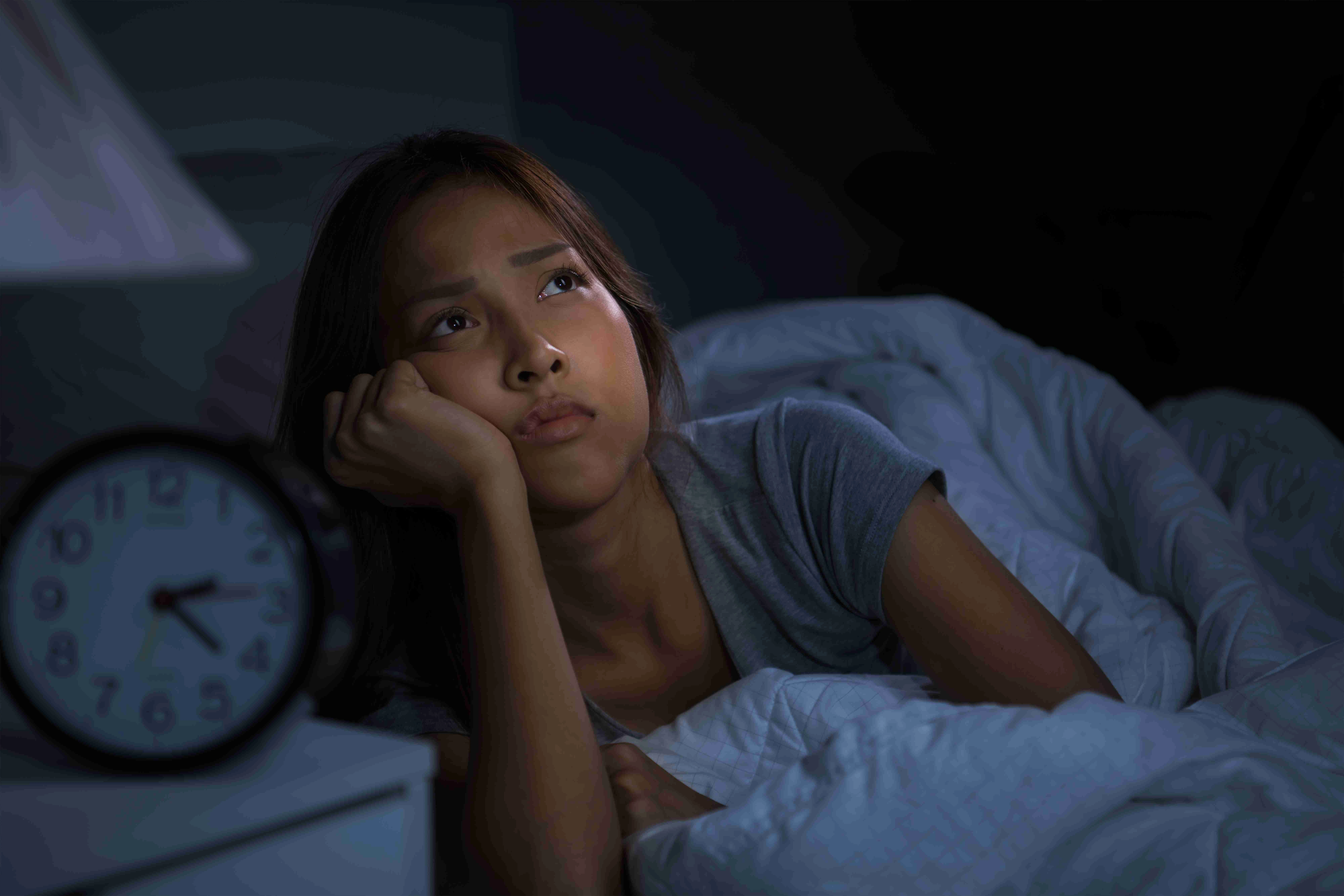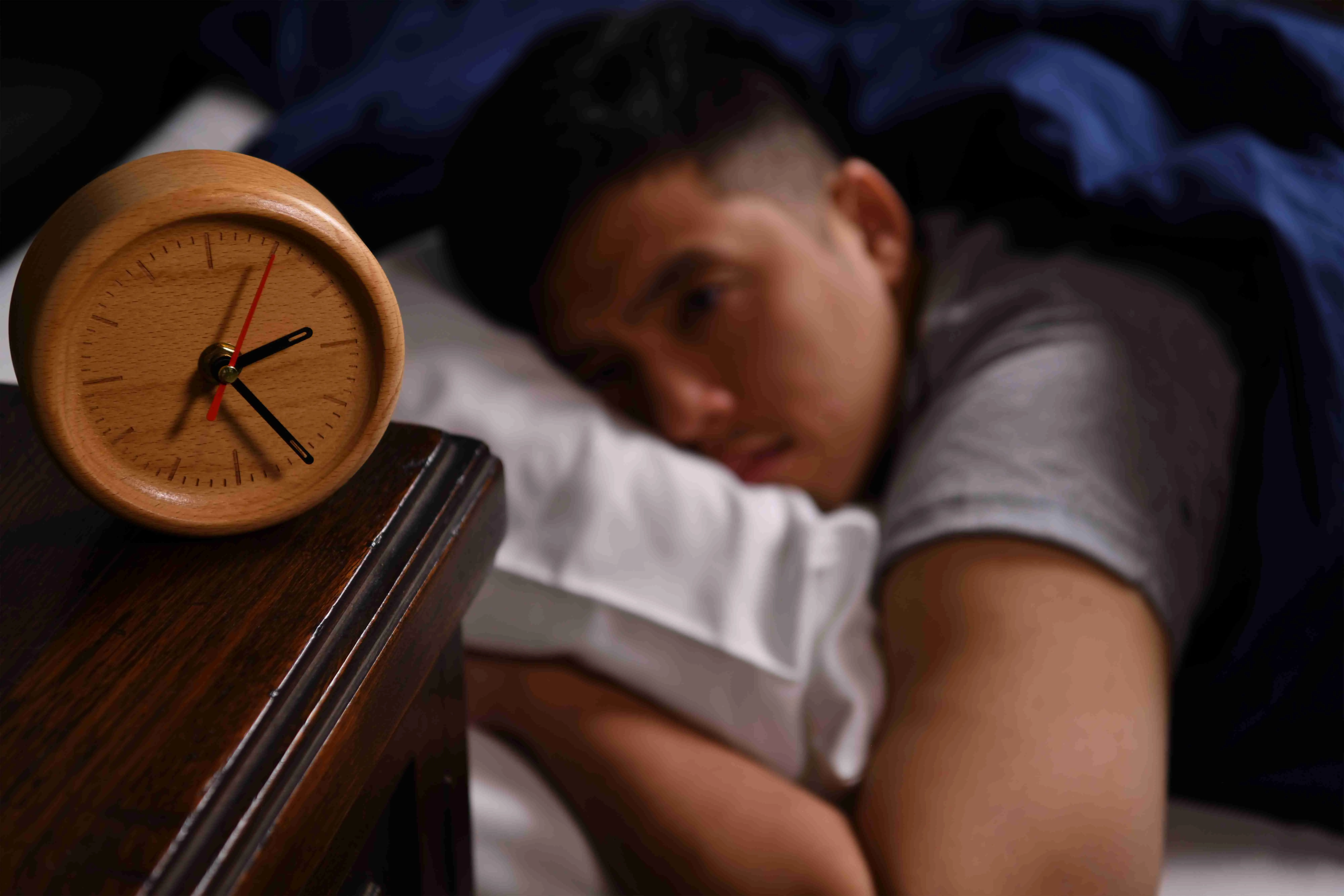Many people around the world suffer from insomnia, which can decrease their overall quality of life, as having quality sleep can improve and evolve every aspect of people’s lives.
Insomnia types vary from one person to another, as well as their symptoms, and most importantly, the causes of insomnia can drastically differ from psychological factors to lifestyle factors.
It’s crucial to be aware of these causes, as it can help you later on create a strategy to combat the symptoms and effects of insomnia.
What is insomnia?

Insomnia is a common sleep disorder characterized by difficulty falling asleep, staying asleep, or both. It can have various causes, including stress, anxiety, depression, medical conditions, certain medications, and poor sleep habits.
People with insomnia often experience daytime fatigue, irritability, difficulty concentrating, and decreased performance at work or school.
Types of Insomnia and How Causes May Vary
- Acute Insomnia: This type of insomnia is short-term and often occurs in response to a specific event or circumstance. For example, acute insomnia may occur after a traumatic event, such as the loss of a loved one or a natural disaster. Temporary stressors like work deadlines or exams can also trigger it.
- Chronic Insomnia: Unlike acute insomnia, chronic insomnia is long-term and lasts for at least three nights a week for three months or more. Chronic insomnia can have a significant impact on a person's daily functioning and overall quality of life. The causes of chronic insomnia can vary widely and may include underlying medical conditions, such as sleep apnea or restless leg syndrome. Mental health disorders, such as anxiety and depression, can also contribute to chronic insomnia.
- Primary Insomnia: Any underlying medical condition or substance use does not directly cause primary insomnia. Stress, anxiety, or other psychological factors frequently contribute to it. People with primary insomnia may have difficulty falling asleep, wake up frequently during the night, or wake up too early in the morning.
- Secondary insomnia: Substance abuse, certain medications, or an underlying medical condition are all potential causes of secondary insomnia. Medical conditions such as chronic pain, asthma, or gastrointestinal disorders can disrupt sleep and lead to secondary insomnia. Substance use, including alcohol, caffeine, or nicotine, can also interfere with sleep patterns.
Learn more about the different Types of Insomnia.
Effects of Long-Term Insomnia
- Depression: Over time, insomnia symptoms can escalate into more serious mental health disorders, such as depression, making it crucial to address insomnia as early as possible. Some of the depression symptoms are changes in appetite, lack of motivation, and decreased quality of work.
- Anxiety: Lack of sleep can significantly disrupt the brain's normal functioning, leading to mood swings, irritability, and difficulty concentrating, which are serious symptoms of anxiety that can decrease your overall quality of life.
- Hypertension: Long-term insomnia has been linked to the development of hypertension, also known as high blood pressure. The constant strain on the heart that hypertension causes can gradually weaken the heart muscle, increasing the risk of heart attacks and other cardiovascular diseases.
- Heart Attack: Sleep is a crucial time for the body to repair and restore itself, including the cardiovascular system. When this restorative process is disrupted due to lack of sleep, it can lead to inflammation and other physiological changes that contribute to the development of heart disease.
- Stroke: Individuals who suffer from insomnia have a higher likelihood of experiencing a stroke compared to those who get an adequate amount of sleep. This may be because lack of sleep can lead to high blood pressure and other cardiovascular problems, which are known risk factors for stroke.
- Obtrusive Sleep Apnea: Another potential consequence of long-term insomnia is the development of obstructive sleep apnea (OSA). OSA is a sleep disorder characterized by repeated pauses in breathing during sleep. It has been found that individuals with chronic insomnia are more likely to develop OSA. Learn more about Sleep Apnea.
- Type 2 diabetes: Individuals who consistently have poor quality sleep or insufficient sleep are at a higher risk of developing type 2 diabetes. This may be because lack of sleep can affect the body's ability to regulate blood sugar levels and insulin production.
- Obesity: Insomnia can disrupt sleep and cause hormonal imbalances that make it more difficult to lose weight.
- Psychosis: Psychosis refers to a mental state characterized by a loss of contact with reality, resulting in hallucinations, delusions, and impaired thinking. Lack of sleep can disrupt the brain's normal functioning, leading to symptoms of psychosis.
Common Symptoms of Insomnia
- Difficulty Falling Asleep: Individuals with insomnia often find it challenging to initiate sleep, even when they are tired and in a conducive sleep environment. This difficulty can be frustrating and lead to increased anxiety and stress, further exacerbating the problem.
- Daytime Fatigue: People with insomnia often wake up feeling tired and groggy, even after what should have been a full night's rest. This lack of restorative sleep can lead to decreased energy levels throughout the day, making it difficult to concentrate and perform daily tasks effectively.
- Mood Disturbances: Persistent fatigue can also affect mood, leading to irritability and mood disturbances. Individuals with insomnia may find themselves feeling more easily frustrated or agitated and may experience changes in their overall mood and emotional well-being.
- Negative Impact On Cognitive Function: Memory problems and difficulty with concentration are common symptoms of the disorder. People with insomnia may have trouble remembering things or find it challenging to focus on tasks.
- Gastrointestinal Issues: One of the common symptoms associated with insomnia is gastrointestinal issues. Many people suffering from insomnia often experience problems such as indigestion, heartburn, or an upset stomach. These gastrointestinal issues can be attributed to the disruption of the body's natural sleep-wake cycle, leading to irregularities in digestion.
- Muscle Aches: Many individuals who suffer from insomnia report experiencing muscle discomfort and tension throughout their bodies. This can be attributed to the heightened state of arousal and tension that often accompany the inability to fall asleep.
Learn more about Symptoms of Insomnia.
Common causes of Insomnia
There are various common causes of insomnia. Understanding one's family history of sleep disorders, being mindful of medication side effects, and reducing substance use can all contribute to better sleep hygiene and improved overall sleep quality.
It is important to consult with a healthcare provider for proper diagnosis and treatment options if insomnia persists or significantly impacts daily functioning.
Family history
There may be a genetic component to insomnia, meaning that individuals with a family history of sleep problems may be more prone to developing the disorder themselves.
This could be due to certain genetic variations that affect the regulation of sleep-wake cycles or the production of certain neurotransmitters involved in sleep.
Learn more about Insomnia and Genetics.
Medications and Substance Use
Certain medications can also disrupt sleep and contribute to insomnia. Some medications, such as antidepressants, steroids, and stimulants, can interfere with the body's natural sleep patterns.
Substance use, including alcohol, caffeine, and nicotine, can also impact sleep quality. While alcohol may initially make individuals feel drowsy, it can disrupt the normal sleep cycle and lead to fragmented or shallow sleep.
Medical Conditions and Chronic Illness
Medical conditions and certain medications can also contribute to insomnia. Chronic pain conditions like arthritis or fibromyalgia can make it difficult for individuals to find a comfortable position to sleep in and maintain uninterrupted sleep throughout the night.
Respiratory disorders such as asthma or sleep apnea can cause breathing difficulties during sleep, leading to frequent awakenings.
Psychological and Emotional Factors
Psychological disorders are closely linked to insomnia as well. Conditions such as depression, anxiety disorders, post-traumatic stress disorder (PTSD), and bipolar disorder are commonly associated with sleep disturbances.
The racing thoughts, intrusive memories, or emotional turmoil experienced by individuals with these disorders can make it challenging to relax and fall asleep peacefully.
Lifestyle and Behavioral Factors
Lifestyle factors can contribute significantly to the development of insomnia. Poor diet choices, lack of physical activity, and excessive consumption of alcohol or sedatives can all disrupt the body's natural sleep patterns.
It is essential to maintain a healthy lifestyle that includes regular exercise, a balanced diet, limited alcohol intake, and avoidance of excessive caffeine or nicotine to promote good quality sleep.
Environmental and External Factors that Cause Insomnia

Several environmental and external factors can contribute to insomnia. By understanding these factors and implementing strategies to mitigate their effects, individuals can improve their sleep quality and reduce insomnia symptoms.
Disruptive Sleep Environment
This refers to any condition or element in the immediate surroundings that interferes with sleep. For example, excessive noise, uncomfortable temperature, bright lights, or an uncomfortable bed can all contribute to a disruptive sleep environment.
When individuals are unable to find a peaceful and comfortable setting to sleep in, their ability to relax and fall asleep is compromised, leading to insomnia.
Jet Lag
Jet lag occurs when individuals travel across different time zones, disrupting their circadian rhythm – the internal body clock that regulates sleep-wake cycles.
This misalignment between the internal clock and the external environment can lead to difficulty falling asleep at the desired time or staying asleep throughout the night.
The severity of jet lag symptoms varies depending on the number of time zones crossed and the individual's ability to adapt to the new schedule.
Shift Work Sleep Disorder (SWSD)
SWSD occurs when individuals work non-traditional hours that are inconsistent with their natural sleep-wake cycle. This disruption in the regular sleep pattern can lead to difficulties falling asleep or staying asleep during the designated sleep hours.
People who work night shifts or rotating shifts frequently experience SWSD because the irregular work schedule interferes with their body's natural circadian rhythm.
Biological and Hormonal Causes of Insomnia
Besides the environmental and external factors that can be a primary cause of insomnia, there are also biological and hormonal causes that can contribute to insomnia, such as circadian rhythm disorders and hormonal changes.
Circadian Rhythm Disorders
One of the biological causes of insomnia is circadian rhythm disorders. The circadian rhythm is the internal clock that regulates our sleep-wake cycle. When this rhythm is disrupted, it can lead to difficulty falling asleep or staying asleep at the desired times.
Hormonal Changes
Hormonal changes can also play a role in causing insomnia. Fluctuations in hormone levels, such as those that occur during menstruation, pregnancy, or menopause, can disrupt sleep patterns.
For women experiencing premenstrual syndrome (PMS), hormonal changes can lead to physical discomfort and mood swings that interfere with sleep.
Learn more about Women and Insomnia.
Cognitive and Behavioral Causes
Addressing cognitive and behavioral causes of insomnia is crucial to decreasing the negative impact of the symptoms. By addressing these underlying causes, individuals can improve their sleep quality and overcome the challenges of insomnia.
Overactive Mind or Racing Thoughts
One common cognitive cause of insomnia is an overactive mind or racing thoughts. When individuals have a lot on their minds, it can be challenging to relax and quiet their thoughts, making it difficult to fall asleep.
Racing thoughts can be a result of stress, anxiety, or even excitement about upcoming events. These cognitive factors can disrupt the sleep-wake cycle and contribute to chronic insomnia.
Learned Insomnia and Sleep Performance Anxiety
Learned insomnia refers to the development of negative beliefs and expectations about sleep due to past experiences of difficulty falling or staying asleep. This can create a vicious cycle where the individual becomes increasingly anxious about their ability to sleep, leading to heightened arousal and further sleep disturbances.
Another cognitive cause of insomnia is sleep performance anxiety, which involves excessive worry and fear about not being able to sleep well. This anxiety can lead to increased arousal and difficulty falling asleep or maintaining sleep throughout the night.
Insomnia in Different Age Groups

Insomnia, the inability to fall asleep or stay asleep, is a widespread sleep disorder that affects individuals of all age groups. However, the causes of insomnia can vary depending on the age group.
Insomnia in Children and Teenagers
In children and teenagers, one of the main causes of insomnia is an irregular sleep schedule. With the increasing demands of school, extracurricular activities, and social engagements, many children and teenagers find it difficult to establish a consistent bedtime routine.
Additionally, the use of electronic devices such as smartphones and tablets before bed can disrupt their sleep patterns, leading to insomnia.
Insomnia in Adults
In adults, stress and anxiety are often major contributors to insomnia. The pressures of work, financial responsibilities, and personal relationships can cause individuals to experience racing thoughts and worry, making it difficult to relax and fall asleep.
Furthermore, lifestyle factors such as excessive caffeine intake, irregular sleep patterns, and poor sleep hygiene can also contribute to insomnia in adults. Additionally, certain medical conditions, such as chronic pain or hormonal imbalances, may further exacerbate insomnia in this age group.
Insomnia in Older Adults
Older adults often experience insomnia as a result of age-related changes in sleep patterns. As we age, our bodies produce less melatonin, the hormone that regulates sleep-wake cycles. This can lead to difficulty falling asleep and staying asleep throughout the night.
Other factors that contribute to insomnia in older adults include underlying health conditions like arthritis or respiratory disorders, medications that interfere with sleep, and increased sensitivity to environmental factors such as noise or light.
Learn more about Insomnia and Older Adults.
FAQs
How is insomnia diagnosed?
To diagnose insomnia, healthcare professionals typically begin by conducting a comprehensive evaluation of the patient's symptoms and medical history. They may also ask the patient to keep a sleep diary to track their sleep patterns over a period of time.
How is insomnia treated?
Fortunately, there are several treatment options available to help manage and alleviate the symptoms of insomnia. One commonly recommended approach is cognitive-behavioral therapy for insomnia (CBT-I), Additionally, medications such as sedatives or hypnotics may be prescribed to help induce sleep.
What is the primary cause of insomnia?
The primary cause of insomnia is often associated with psychological and emotional factors. Stress, anxiety, and depression are common triggers that can disrupt normal sleep patterns and lead to insomnia when individuals experience high levels of stress or have unresolved emotional issues.
Does insomnia ever go away?
The answer is not straightforward. If a particular event or circumstance is the cause of the insomnia, it may be a transient condition that goes away on its own. However, for some individuals, insomnia can become chronic and persist for weeks, months, or even years.
Does exercise help with insomnia?
Exercise has been shown to have various benefits for sleep, including reducing the time it takes to fall asleep and improving sleep quality. Engaging in regular physical activity can also help regulate the body's internal clock, making it easier to establish a consistent sleep routine.
How do I manage insomnia?
To manage insomnia effectively, it is important to establish a consistent sleep routine. This involves going to bed and waking up at the same time each day, even on weekends. Creating a peaceful and comfortable sleep environment is also crucial.
Conclusion
There are many factors that affect the complex sleep disorder known as insomnia. While the exact cause of insomnia may differ from person to person, it is important to identify and address the underlying factors that contribute to the condition.
By understanding these causes and implementing appropriate strategies, individuals can improve their sleep quality and overall well-being. If you are experiencing symptoms of insomnia, it is advisable to consult with a healthcare professional who can provide guidance and support in managing this condition.
Jessica H.
Jessica is a reviewer, writer, and sleep enthusiast at Sleepiverse. Jessica graduated with her master's degree in Nursing research and education. She is a registered nurse and currently works in the Intensive Care Unit. Since becoming a nurse, Jessica has worked the night shift, which means a disrupted sleep schedule. Knowing she needed to function at her best while caring for patients at night, she spent a lot of time researching how to sleep well with a difficult schedule.


